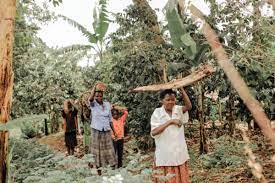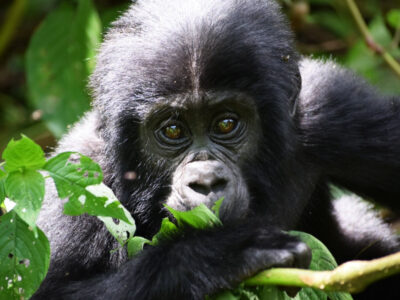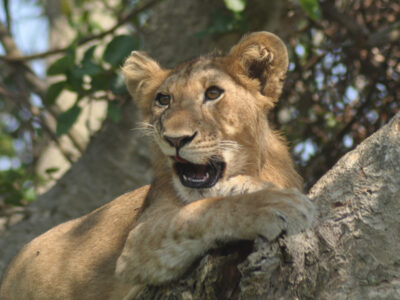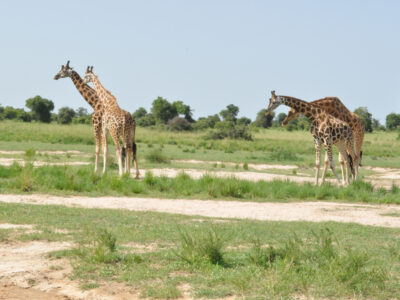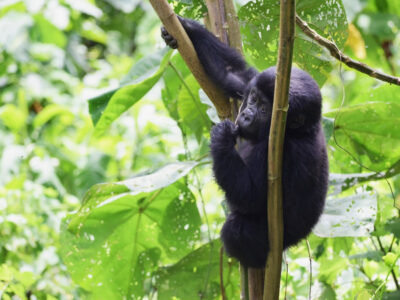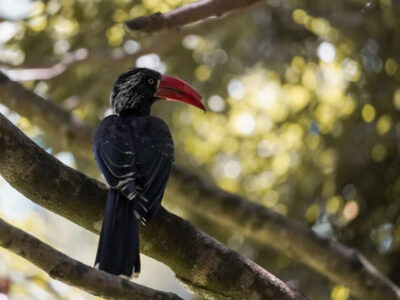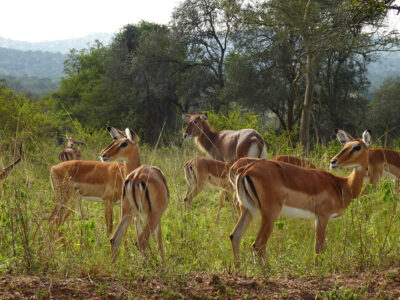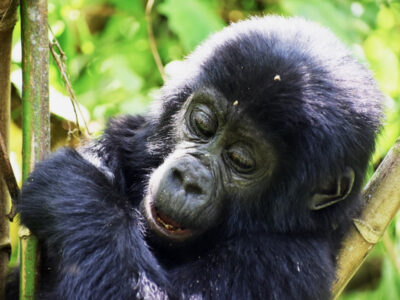A landmark victory was reached into the people living around Mount Elgon national park to access to various resources, particularly in the districts Sironko, Manafwa, Naminsidwa and Mbale city in October 2020.
Betty Chesaki, a resident of Wanale in Mbale District said that for generations part of the land she occupies was declared a national park and they have been threatened with evictions where they have been ordered not to step in the park again.
She added saying that it has been the place she has known since she was a child as their ancestral home. Unfortunately, they were evicted and not compensated. “We do not have a source of livelihood. We have been at loggerheads with wildlife officials because if they got anyone in the park, they would either kill you or take you to jail,” Chesaki said.
Betty is one of the natives living in Mount Elgon national park and has been conflicting with Uganda Wildlife Authority about their land ownership and user rights about the park.
Since people living near conservation areas around Mount Elgon National Park particularly in the districts of Sironko, Manafwa, Naminsidwa and Mbale City rights were protected, the situation has become history after Action for Development (ACFODE) and UWA in partnership with the Swedish Foundation for Human Rights.
Incorporation the communities
A deliberate effort to incorporate the communities into the management and conservation of the park was recommended according to a report released by ACFODE in 2022, after conducting a baseline survey, for conservation to thrive.
Chesaki says that they were sensitized on how to protect natural resources like planting trees and now they are at peace with the park officials. They are allowed to go to the park on agreed days to fetch firewood and other medicinal leaves and roots from the park.
The Benet people in 2020 finally achieved a landmark victory when government issued a memorandum of understanding (MoU), which granted them regulated access to various resources within the park, including cultural sites and cattle grazing areas.
Although the Bennet community were sensitized about Mt Elgon national park, UWA rangers continued to ignore the MoU, Instead, they continued assaulting indigenous people who enter the park, refusing access to cultural sites, and detaining cattle grazing in the park’s moorlands.
“For us, a new hope came when the ACFODE started engaging them, organizing dialogue between the locals and officials from Uganda Wildlife Authority” Paul Makabai one of the victims of the evictions says.
He added saying that they were not sure what would happen, but here they are. They have finally learnt to live with the park authorities and the wildlife. Though some of the areas around the park still have some issues, slowly they are getting to live in harmony with the wildlife and they hope this good relationship continues to the end.
Peaceful resolution was conceived
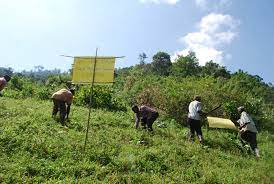
“The programme started in January 2020 in the four districts of Mbale, Sironko, Namisindwa and Manafa, each represented by one Sub County. She says the project had partnerships with UWA, CSOs working in conservation areas, frontier communities, district leaders and other stakeholders” Happy Ainomugisha, the programmes manager at ACFODE says.
“The project had partnerships with UWA, civil society organizations (CSOs) working in conservation areas, frontier communities, district leaders and other stakeholders. According to Ainomugisha, several stakeholders, including the communities took part in the baseline survey and found out that the biggest issue was the question of the boundaries.” she says.
She says that there was a lot of misconception between the two parties on their roles and responsibilities. They also undertook a legal audit of conservation laws and policies because they needed to understand that Mount Elgon is protected and that there may be laws and guidelines on how to and when to access these resources. These helped us to embark on resolving the issues between the two parties
Do not harm approach
“Based on the principle of do no harm, they trained 30 members from both the communities and UWA officials on human rights-based approach to manage conflict.” Ainomugisha says.
She continuous saying do no harm emphasizes that while we are protecting the environment, the rights of the indigenous communities need to be safeguarded. How do I execute my mandate without inflicting harm on the people that are living near the national park?
“For years, both sides considered each other as enemies that must be defeated however the situation is normalizing after years of bickering.” Rachael Bigala, a resident of Wanale and also a community lead person in Mbale City, says.
She says that the community never knew why UWA was in the park. They did not know that a national park is a protected area. During the study, people shared information and ACFODE helped the community to appreciate the importance of the national park.
A 54-year-old resident and a team leader of community focal persons of Subaali village Moses Magombe of Wanale Sub- County in Mbale City, says the local communities were taught the benefits of coexisting with nature.
“There are improved linkages between frontline communities and UWA authorities, strengthened accountability among duty bearers and protection of rights and remedy for human rights violations.” Regina Bafaki, the executive director of ACFODE, says.
People are accountable
“With strategic engagements, the human right based approach and conservation efforts of duty bearers, UWA’s actions towards frontline communities are no longer confrontational.” Bafaki says.
She says accessing to natural resources in the reported areas due to the resource management guidelines has greatly improved. There is also improved working relationship between frontline communities and UWA. Community members are now permitted to enter the park and are increasingly becoming accountable and protective of the park resources.
Despite these achievements, challenges such as Gender based violence (GBV) and other injustices against women and girls continue to be a concern in communities.

